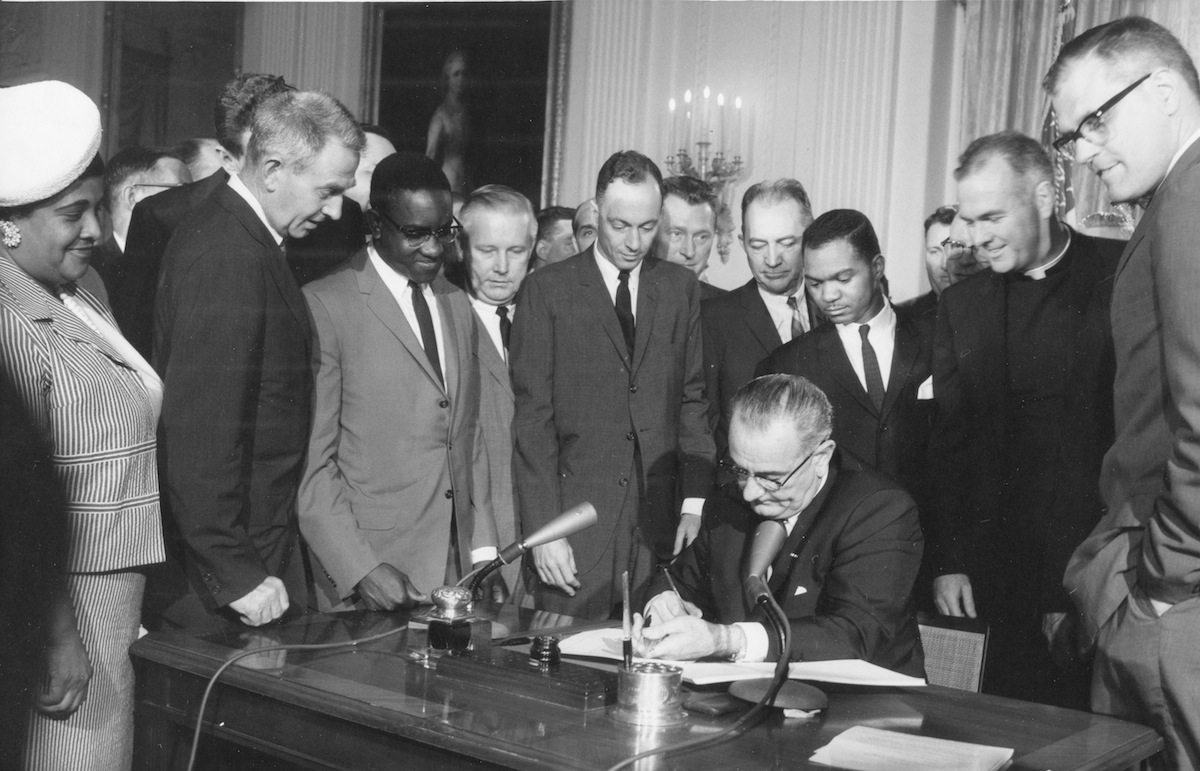
For President Johnson to sign the Civil Rights Act into law on July 2, 1964, was a no-brainer: the date was a Thursday, just as it is this year, and the symbolism of marking the hard-fought victory just before Independence Day would be a shame to waste.
But, as TIME noted in its original 1964 coverage of the landmark legislation, the Fourth of July wasn’t the only significant date in play. The date on which the Senate passed the bill was June 19, 1964—precisely one year after “President John Kennedy sent to Congress a civil rights bill, [and] urged its speedy passage ‘not merely for reasons of economic efficiency, world diplomacy or domestic tranquility, but above all because it is right.'” Though Kennedy had been assassinated the previous fall, the law he had advocated for had actually grown in strength and scope.
After the House also passed the bill and it went on to the President, the season of its signing—and not just the calendar date—would also prove significant.
The bill included many obviously important provisions affecting matters of great weight, like voting rights and equal employment. But, as TIME pointed out, it would take months to see the voting rules take effect, and the labor matters included a period during which businesses could adjust. On the other hand, one of the parts of the law—a part that may seem today to be far less important—was, as TIME put it, “effective immediately, and likely to cause the fastest fireworks.”
The law entitled all persons to equal use of public accommodations, from hotels and movie theaters to soda fountains and public swimming pools. In the run up to the final vote, St. Augustine, Fla., proved why pools—long a contentious point, for the necessary closeness that comes with sharing the water with other people—would be a hot topic:
There, five Negroes and two white fellow demonstrators dived into the swimming pool at the segregated Monson Motor Lodge. The motel manager, furious, grabbed two jugs of muriatic acid, a cleansing agent, tried unsuccessfully to splash the stuff on the swimmers. Cops moved in, one of them stripped off his shoes and socks, leaped gracelessly into the water and pummeled the swimmers with his fists. When the fracas was over, 34 people, including the swimmers and other civil righters who kept dry, were hauled off to jail.
Due to the time of year, the new law’s effects would be immediately visible at swimming pools around the country.
More Must-Reads From TIME
- The 100 Most Influential People of 2024
- Coco Gauff Is Playing for Herself Now
- Scenes From Pro-Palestinian Encampments Across U.S. Universities
- 6 Compliments That Land Every Time
- If You're Dating Right Now , You're Brave: Column
- The AI That Could Heal a Divided Internet
- Fallout Is a Brilliant Model for the Future of Video Game Adaptations
- Want Weekly Recs on What to Watch, Read, and More? Sign Up for Worth Your Time
Write to Lily Rothman at lily.rothman@time.com